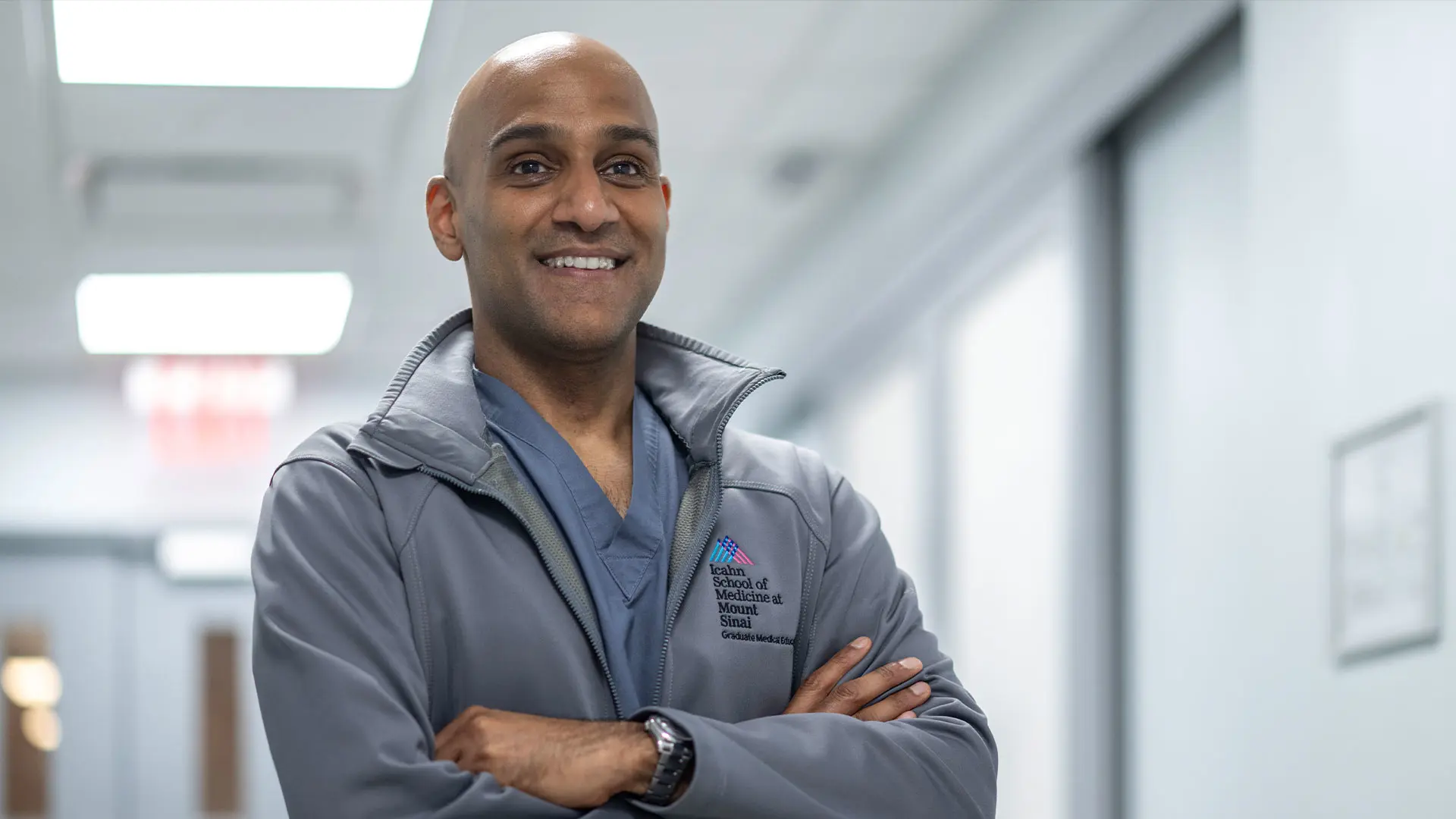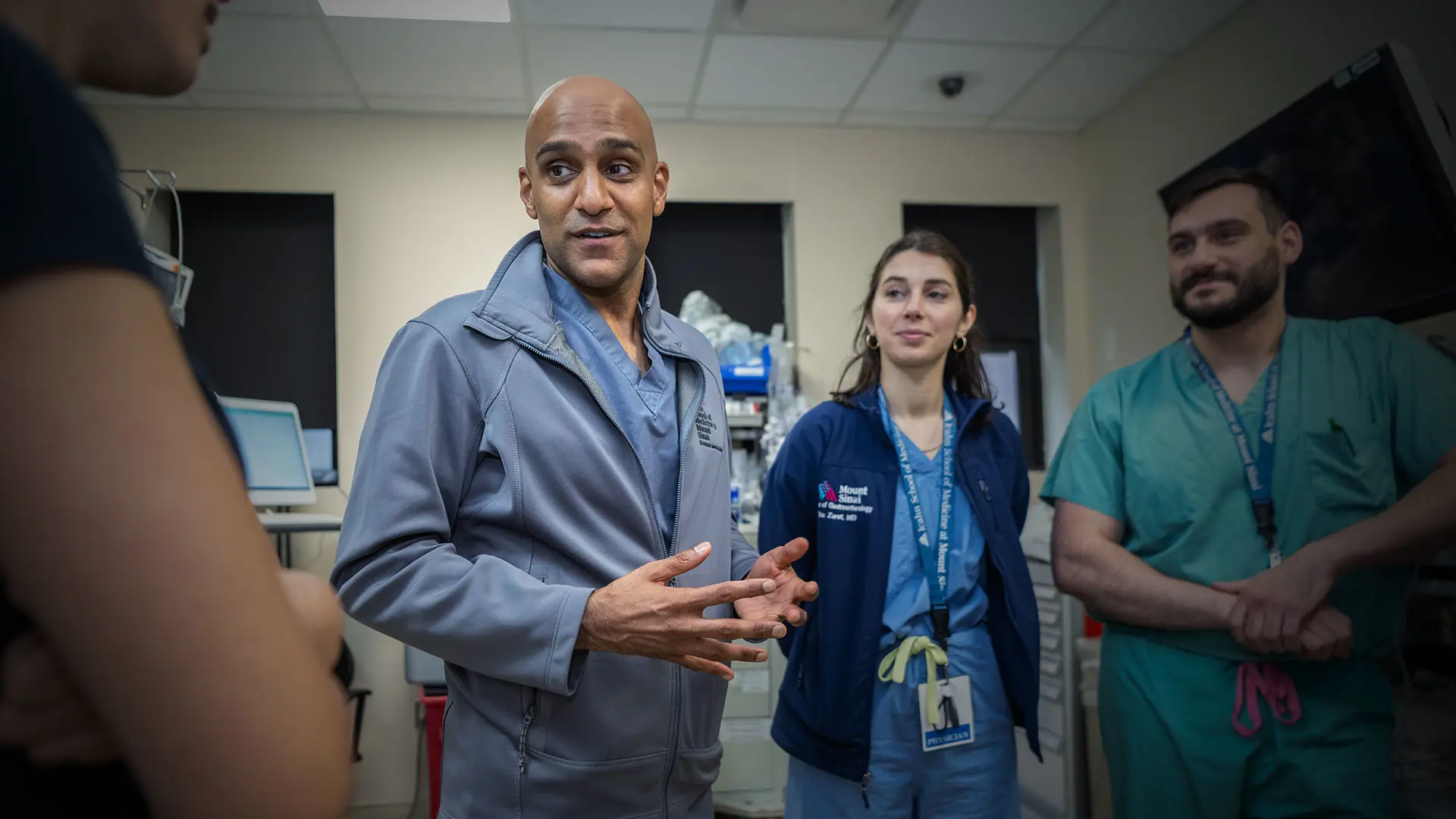Brijen Shah, MD, is truly a doctor without borders. Since completing his gastroenterology fellowship at Mount Sinai in 2011, his career has played out at the intersection of that specialty and geriatrics, medical education, and quality improvement. He became the first physician in the country trained in GI and elder care medicine in a combined fellowship. He has been an unwavering provider over the years to the Mount Sinai Health System’s large cohort of 9/11 responders, and to the LGBTQ community. And, in his latest role, in June 2025, he became a board member of the American Gastroenterological Association (AGA), providing him with the widest stage yet to build on those causes and principles he is most passionate about, issues with the potential to impact the broad field of clinical practice.
By his own admission, Dr. Shah, Professor of Medicine (Gastroenterology), Medical Education, and Geriatrics and Palliative Medicine at the Icahn School of Medicine at Mount Sinai, has always been a “multiple-irons-in-the-fire person,” despite repeated advice from colleagues (including mentors) to narrow his professional pursuits.
“I did focus a bit,” he concedes, “but I really enjoy the cross-talk between the different worlds I live in. Each has given me great exposure and experience and proven to me that you don’t have to limit your interests to just GI. There are countless opportunities in areas such as health care advocacy, quality improvement, and education for clinicians who want to expand their horizons.”
Geriatrics and palliative medicine have competed most vigorously, though, for Dr. Shah’s attention. He traces that pull to his Mount Sinai fellowship, which gave him the opportunity to create, working with the Brookdale Department of Geriatrics and Palliative Medicine, a specialized curriculum for GI fellows geared toward treating and managing older patients.
"It was also my first medical education project,” he recalls, “allowing me to develop a set of standardized patient cases to teach fellows how to have a conversation with older patients about the importance of health care screening.” In the course of that work, he learned from geriatricians about the urgent need countrywide for dual-trained GI/geriatric specialists. Dr. Shah took their words to heart, becoming a trailblazer in the field.
Teaching and education have also been personal drivers, allowing him to discover and then carefully nurture ways to give back to others. “Health care is a team sport, and all of us know, as physicians, that you don’t just receive education; you have an obligation to use it to help others,” he acknowledges. “When I’m with patients and families, I enjoy empowering them with information and tools to manage their conditions. Or when I’m in my office with a student, I eagerly offer knowledge and experience that can help them advance their careers. Those are the things that really motivate me.”

As a new board member of AGA, Dr. Shah intends to champion enhanced educational offerings for advanced practice providers as well as trainees that can fully embrace artificial intelligence. He also plans to be a strong advocate for research funding and for programs that support the development of physician-scientists.
Dr. Shah’s altruism, curiosity, and restless energy have carried him to diverse corners of the Mount Sinai Health System. He served as Chief Medical Officer at Mount Sinai Queens, where he and his team worked to decrease hospital-acquired infections and patient safety events. He also developed multiple training programs for Icahn School of Medicine students, residents, and front-line health care workers, including a comprehensive four-part course for third- and fourth-year medical students exploring the principles of health care delivery science. And outside Mount Sinai, he led a team that addressed health care disparities in the clinical learning environment and participated in competency-based medical education workgroups for the American Council for Graduate Medical Education, resulting in a paper and national presentations on the topics.
Dr. Shah’s new responsibilities as a board member of AGA are, in fact, a continuation of his already-active role with that 16,000-member global organization. He has served as co-chair of its Education and Training Committee and has been involved in a number of important quality improvement projects. He looks eagerly toward “getting more deeply involved on multiple fronts and working with an amazing team at AGA to support all our members at a time of tremendous change within the health care system.”
One area Dr. Shah intends to champion is enhanced educational offerings for advanced practice providers, as well as trainees, that can fully embrace the transformative power of artificial intelligence. In his new three-year leadership role, he also plans to be a strong advocate for research funding and for programs that support the development of physician-scientists. Whenever possible, Mount Sinai could be part of his agenda for change. He hopes to incorporate its fellowship program, for example, in a soon-to-launch learning cohort with other institutions designed to offer a unique combination of quality improvement and climate science education.
Characteristically, Dr. Shah sees his expanding work with AGA as not just a personal, but a shared, experience. “AGA is a terrific example of how all of us can amplify our networks to enhance our learning and professional development in areas that interest us,” he declares. “We often become too tunnel-visioned without considering the larger world. Sometimes the least expected activities we undertake can yield the greatest rewards in terms of exposure to new ideas, skills, and people—things that can change the trajectory of our careers.”
